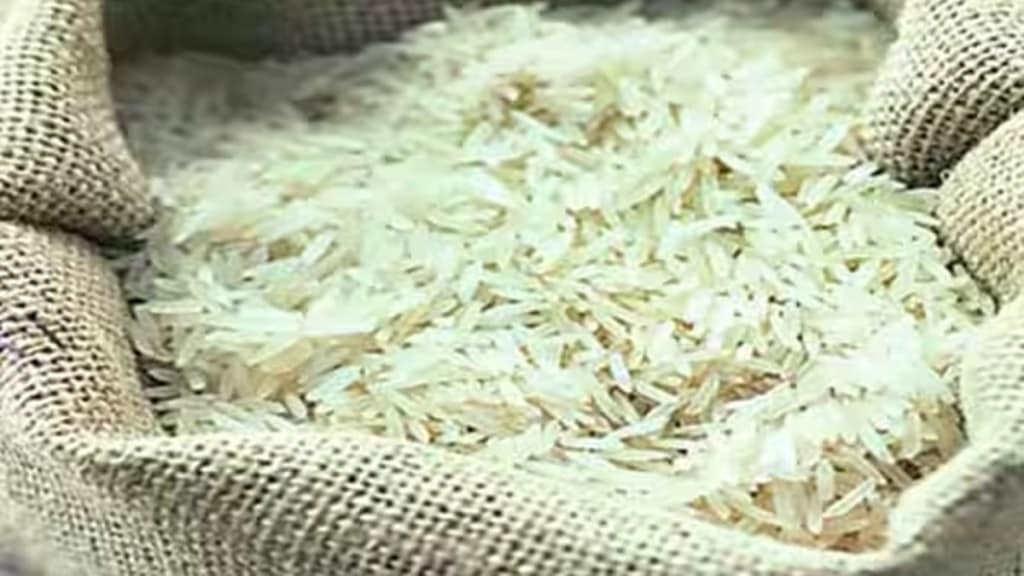Rice exporters and traders in basmati rice-growing regions in Punjab, Haryana and western Uttar Pradesh have stopped procurement of grains from the mandis from Sunday, protesting against the government’s decision to continue with the high minimum export price (MEP) of $ 1200/tonne.
Several rice exporters who FE spoke to said at the current level of MEP, it would be unviable to procure basmati paddy. Pakistan, which competes with India in the global market, is currently exporting aromatic rice at around $ 900/tonne, they noted.
“Farmers will be impacted the most as we have stopped purchase from the market of aromatic rice,” a rice exporter said. Mandi prices of short duration pusa 1509 basmati paddy prices have declined by Rs 600/quintal to Rs 3100/quintal since the government announced the MEP on aromatic rice shipment in August.
All India Rice Exporters Association (AIREA), the apex body of basmati rice exporters following a meeting on Saturday had urged members to discontinue or stop buying paddy in the interest of the trade.
“Members are advised to exercise extreme caution in the procurement and inventory holding of paddy as these are expected to significantly impact business viability and potential of basmati export at remuneration realisation,” according to the advisory issued by Nathi Ram Gupta, president, AIREA.
“We have stopped procuring basmati paddy from farmers as current MEP is at a highly unrealistic level, exports at this rate is virtually impossible,” Vijay Setia, former president of AIREA and Karnal based basmati rice exporter, said.
The government on August 25, imposed a ‘temporary’ MEP of $1200/tonne till October 15 on basmati rice shipment to restrict ‘illegal shipment of white non-basmati rice in the garb of premium basmati rice.’
According to a communication by the department of food and public distribution on Saturday stated ‘present arrangement for registration cum allocation certificate for basmati rice may continue beyond October 15, 2023 till further orders.’
According to AIREA, the average export price of basmati rice in the last five years has been $ 975/tonne. Industry sources said following a recent meeting of exporters with the commerce and industry minister Piyush Goyal, the government had agreed to reduce MEP on basmati rice to $ 850/tonne.
Exporters said that about 75% of India’s 4.5 million tonne (MT) of basmati rice exports annually are shipped at an average value in the range of $ 700 – $ 1000 a tonne.
The commerce ministry had earlier stated that it has received credible field reports regarding misclassification and illegal export of non-basmati white rice whose shipment was banned from July 20,2023.
“There has been large variation in the contract price of basmati being exported with lowest contract price being $ 359/tonne in backdrop of average export price of $ 1214/tonne during the current month,” the commerce ministry has stated in August.
A committee set up by Agricultural and Processed Food Products Exports Development Authority (APEDA) in collaboration with the agriculture ministry looked into large variations in the contract price of basmati exported in August with the lowest price being $359/tonne against the average export price of $1,214/tonne.
India has exported 2 million tonne (MT) of basmati rice valued at $ 2.2 billion in the April-August period of the current fiscal, an increase of 12.3% in terms of value compared to the same period previous year.
In 2022-23, the country exported 4.56 MT of basmati rice valued at $ 4.78 billion with an average price of 1050/tonne.
Geographical Indication (GI) tagged basmati rice is grown in 70 odd districts in Punjab, Haryana, western Uttar Pradesh, Jammu & Kashmir and Uttarakhand.
The aromatic and long grain rice commands a premium in the global market. India has a share of around 75%-80% in the global aromatic rice market.
